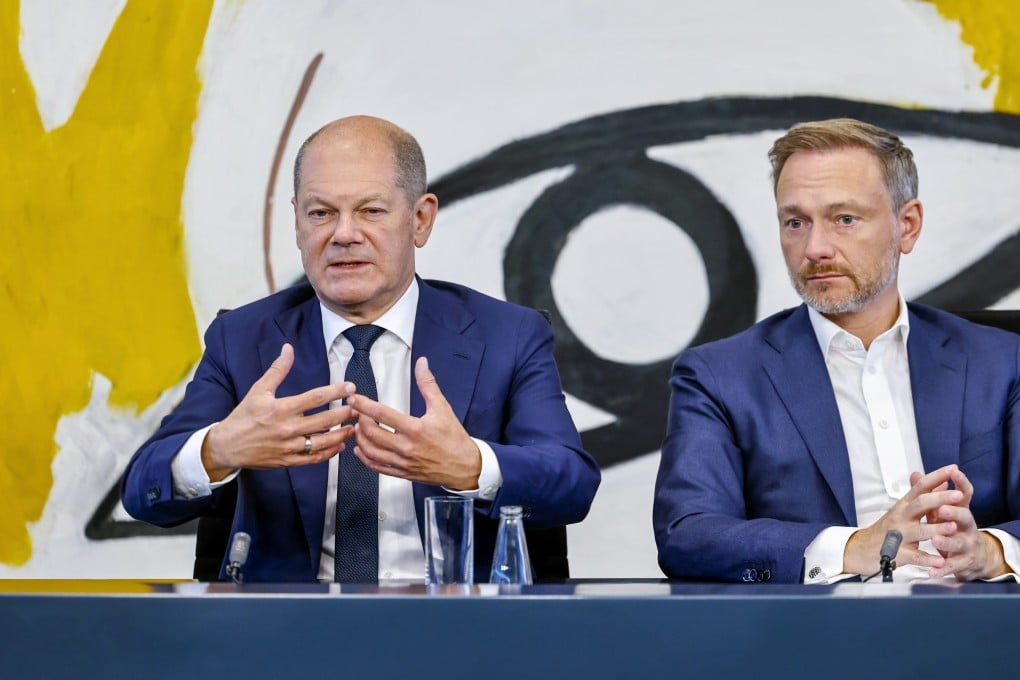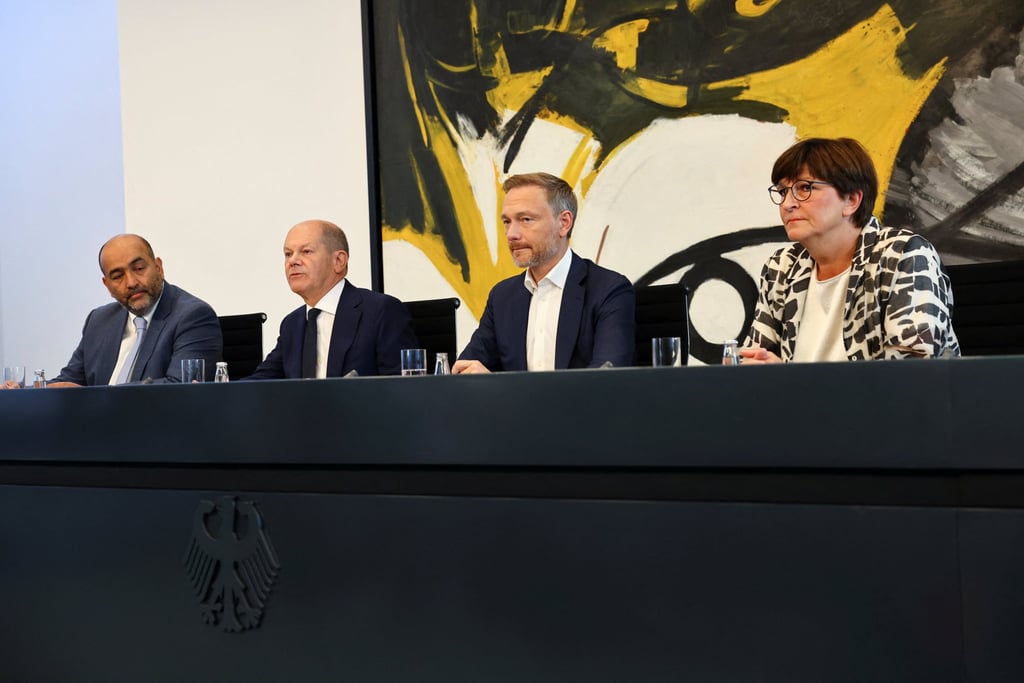Germany’s US$64.7 billion support package to help consumers with cost of living
- The latest agreement brings the country’s total relief to almost 100 billion euros since the start of the Ukraine war
- Higher energy prices are expected to push inflation in Germany to around 10 per cent by the end of the year, its highest in decades

Faced with a cost-of-living crisis making it impossible for some households to cope, the German government on Sunday announced a package of more than €65 billion (US$64.7 billion) to help residents with skyrocketing energy costs and inflation.

The latest agreement, which brings total relief to almost 100 billion euros since the start of the Ukraine war, was hammered out overnight into Sunday by Germany’s three-way ruling coalition of Scholz’s Social Democrats, the Greens, and the liberal FDP.
Speaking alongside Scholz were Omid Nouripor of the Greens and Finance Minister Christian Lindner of the FDP. Those two parties are in the three-party governing coalition along with Scholz’s Social Democrats.
All three emphasised national solidarity in the current circumstances. “Germany stands as one in a difficult time,” Scholz said.
“We won’t let ourselves be divided,” Nouripour added. “We’ll do our part to make sure we live through a winter of solidarity.”
Lindner added that “we’re doing everything in our power to get through this shortage situation.”